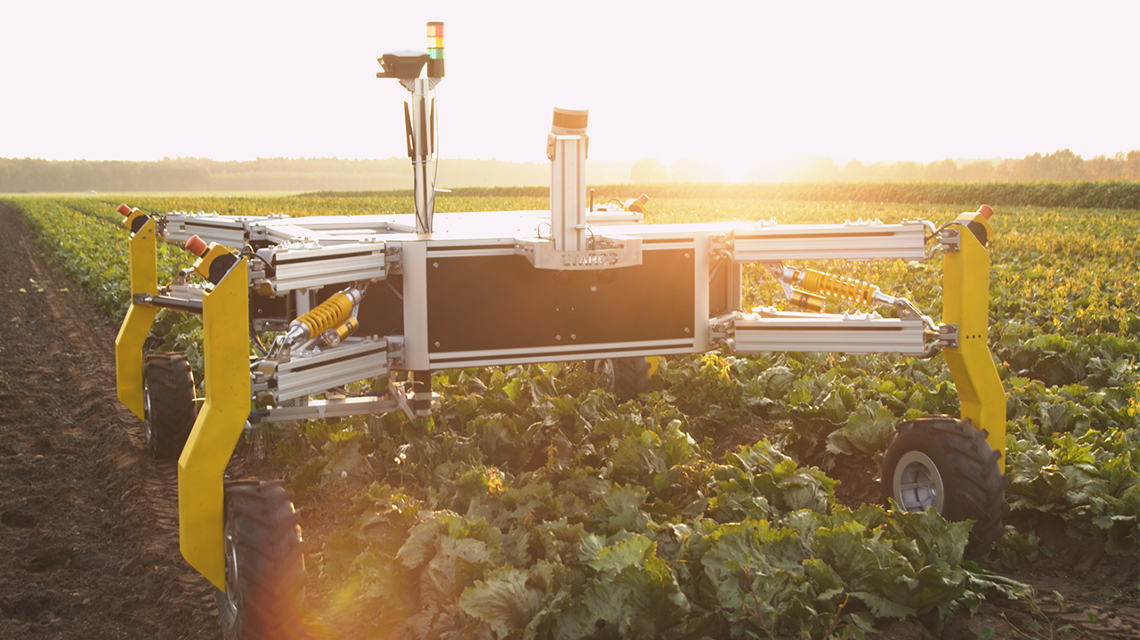Field robot helps with weed control
Researchers from Aachen and their partners have developed a field robot that detects weeds and removes them with electric shocks.

Chemical herbicides have long been the panacea against unloved plants in the field. However, the use of pesticides such as glyphosate has long been controversial and the consequences for the environment - especially biodiversity - are alarming. In addition to new resistant plant varieties, researchers are therefore working on new technologies to counteract the trend with environmentally friendly methods. One such example is the field robot "ETAROB", which was developed by the Institute MASKOR (Mobile Autonomous Systems and Cognitive Robotics) of the Aachen University of Applied Sciences together with industrial partners. "With the field robot, we are making a contribution to a more environmentally friendly agriculture of the future and providing an impressive example of the innovative power at universities of applied sciences," explains Marcus Baumann, Rector of Aachen University of Applied Sciences.
Eliminating weeds with electric shocks
ETAROB does not need a driver. It drives across fields fully autonomously, loosening the soil and removing weeds at the same time. Instead of using chemicals, ETAROB uses electric shocks to zap the unpopular plants. To do this, it collects data while driving: It records the structure, colour and shade of the leaves and compares the findings with the information stored internally. This way, the robot can distinguish between useful plants and weeds and kill off the troublemakers. The weed removal method was developed by the cooperation partner Zasso GmbH.
System opimizes itself
However, the system does not only recognize plants. According to the researchers, it can also optimise itself, since changes in the plant are digitally recorded with the aid of photos and stored in the system. "Like humans, the robot is able to recognise plants and learn from experience," explains Josef Franko, co-founder of the project and scientific assistant at the MASKOR Institute. In the future, ETAROB will also be used in a smaller form to help weed in winegrowing or elsewhere during harvesting.
Robotics award for field robot
The MASKOR team received the Robotics Award for the development of the field robot at this year's Hanover Fair and innovation may pave the way to the founding of a company. The team is financially supported by the European Regional Development Fund (ERDF), an EU funding programme.
bb/siw


